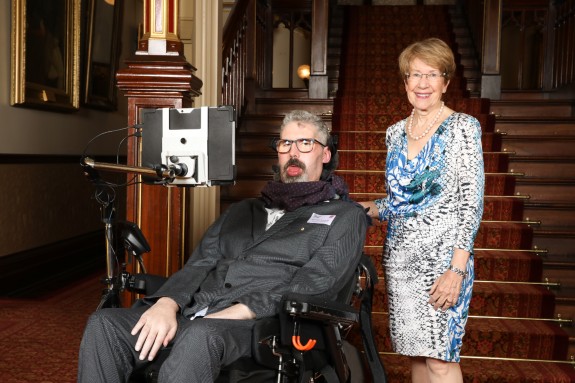Vale Professor Justin Yerbury AM

Professor Justin Yerbury AM, has died aged 49, from the illness that became the focus of his life’s work, motor neurone disease (MND).
Professor Yerbury, pictured here with Her Excellency the Hon. Margaret Beazley AC KC at the 2022 Premier’s Prizes for Science & Engineering after receiving the prize for Excellence in Medical Biological Sciences, was a renowned molecular biologist dedicated to understanding MND.
MND is a devasting disease where motor neurons are attacked, leading to loss of muscle control, muscle atrophy and, invariably, death. A leader in this field, Professor Yerbury was also a tireless advocate for MND patients, working to effect change in equity and accessibility.
While the precise mechanism causing cellular dysfunction in affected motor neurons remains unknown, Professor Yerbury’s research radically shifted the understanding of the mechanism of protein aggregation into deposits and cellular dysfunction in MND.
This represents the first real advance in understanding protein deposits in decades and, for the first time, links biochemical processes to the physical symptoms of MND. These findings have been accepted by leaders in the field, and more generally across the biochemistry, cell biology and neuroscience fields.
Professor Yerbury’s work also focused on therapy development for NSW families, with his discoveries in collaboration with other national and international leaders resulting in the preclinical testing of therapeutic strategies, the development of therapeutic antibodies and genetic tests for MND. The potential benefit of this in NSW is huge, with reports of non-genetic case rates seven times higher than the national average in several NSW towns, and with several large NSW families affected by the inherited form.
Professor Yerbury published over 90 articles in high impact journals, including Nature Communications and PNAS, with a h-index of 39. Collectively, his work on protein deposits has been accessed over 40,000 times and cited over 2,000 times.
The Office of the NSW Chief Scientist & Engineer extends its deepest sympathies to Professor Yerbury’s family, friends and colleagues.